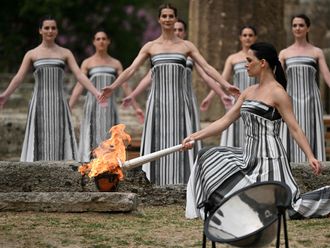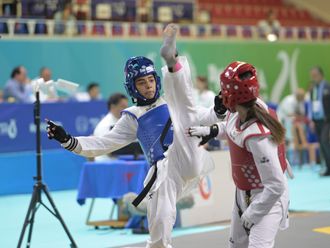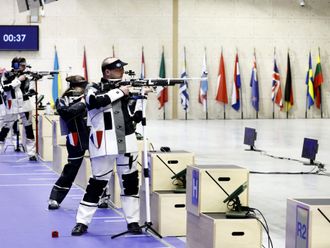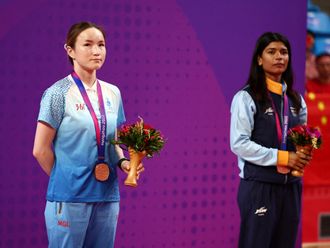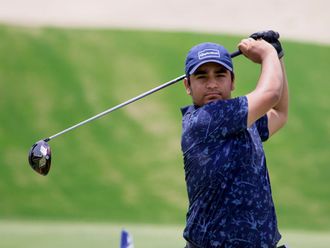He is the shy, unassuming sprint star whose quiet demeanour belies a confidence and ferocity with which few can compete; the supreme athlete whose success is matched only by the intense dislike he inspires.
Justin Gatlin, 35, had already claimed 11 Olympic and World Championship medals, including three golds, before August 5 this year, the night he triumphed over the sainted Usain Bolt at the 2017 World Championships in London.
Far from the acclaim afforded to previous champions, Gatlin’s appearance on the podium to collect his medal was met with a cacophony of boos. Within hours Lord Coe, who presented Gatlin with the gold, said he should have been banned for life long before he had set foot in the stadium.
Little is known about Brooklyn-born Gatlin’s private life, other than that he has a young son, Jace, whom he has described as his “best friend” and chief motivator. In athletics, however, Gatlin, right, is known globally for doping.
He was caught twice — in 2001 and 2006. The first transgression, a year after he joined the University of Tennessee on a scholarship, saw Gatlin test positive for amphetamines. He was banned for two years, reduced to one on appeal, after he attributed the positive test to medication taken since childhood for attention deficit disorder.
He dropped out of university a year later to turn professional, was rewarded with an endorsement contract with the sportswear manufacturer Nike, and took gold in the 60 metres at the 2003 World Indoor Championships. It was the springboard for his glittering career on the track.
He snatched gold in the 100 metres in the 2004 Olympics and again a year later at the World Championships, where he captured a rare sprint double in Helsinki by also winning the 200 metres.
But then doping allegations once again surfaced. Gatlin was told he had tested positive for “testosterone or its precursor”, and was given an eight-year ban, reduced to four on appeal, while his 2006 world-record-equalling time was annulled.
Gatlin’s coach, Trevor Graham, who himself was later banned indefinitely for doping offences, claimed the sprinter was a victim of sabotage. He claimed that a massage therapist, Christopher Whetstine, had rubbed a cream containing testosterone into Gatlin’s legs. Mr Whetstine denied this. While serving his suspension, Gatlin trained with the American football teams the Houston Texans and the Tampa Bay Buccaneers, but was not offered a contract. He returned to sprinting in 2010, joining forces with Dennis Mitchell the following year.
Aged 30, Gatlin finished third behind the much younger Jamaicans Bolt and Yohan Blake at the 2012 Olympics, the fastest 100-metre final in history. His time of 9.79 seconds was a personal best and the same time as the world-record-winning run by Ben Johnson in the 1988 Olympics final in Seoul.
In 2014, Gatlin was nominated for the IAAF Athlete of the Year, despite ongoing speculation over whether he continued to benefit from banned substances taken earlier in his career.
Last year, at 34 years old, he became the oldest American sprinter to qualify for the United States Olympic team since 1912. In Rio he finished second behind Bolt.
He got his revenge on the Jamaican star by defeating him at the World Championships in London in August, but it was an unpopular win with many in the crowd and led to the hostile reaction. Despite his advancing years, Gatlin has hinted that he may compete in Tokyo in 2020.


